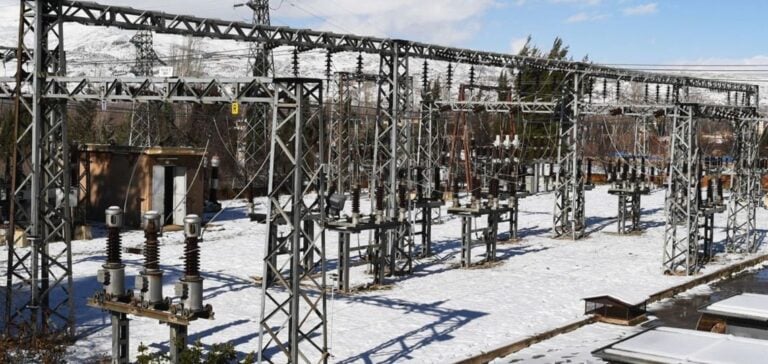Turkey’s energy capacity reached 114,599 MW in October 2024, marking significant progress in the country’s energy diversification efforts. Hydropower plants dominate the mix with 28.1%, followed by natural gas (21.5%), coal (19.1%), solar energy (16.6%), wind energy (10.9%), and geothermal energy (1.5%). This distribution underscores Turkey’s increasing reliance on renewable energy sources, a strategic choice in the global transition to sustainable energy.
In July 2024, electricity demand increased by 6.9% compared to 2023, reaching 58 GW, mainly due to heightened cooling needs during the summer. While Turkey’s installed capacity is sufficient to meet this demand, its dependence on intermittent energy sources highlights the importance of proactive and efficient resource management.
Energy support for northern Syria
Since governance changes in certain areas of northern Syria, Turkey has begun supplying electricity to address basic needs. Before the conflict, this region had an energy capacity of 8,500 MW, now reduced to 3,500 MW. In the absence of adequate infrastructure, the local population relies heavily on private generators, exacerbating the energy deficit.
Turkey’s initiative aims to power essential infrastructure such as hospitals, schools, and public lighting systems. However, if the supply is provided for free, it could impose a significant financial burden on Turkey’s already strained energy system.
Economic and strategic challenges
To ensure the sustainability of this support, it is crucial for Syria to rebuild its energy infrastructure. Compensation mechanisms, such as natural gas supplies, could help offset costs. The reconstruction of Syria’s energy network is expected to take at least 4 to 5 years to achieve operational stability, during which Turkish assistance will remain vital.
A regional political lever
Politically, this assistance is part of a broader strategy to strengthen bilateral relations and stabilize the region. The integration of Turkish goods into the Syrian market and the gradual return of young Syrians trained in Turkey to participate in reconstruction could play a key role in Syria’s economic and social recovery. This approach reflects Turkey’s interest in supporting a self-sufficient and stable Syria.





















